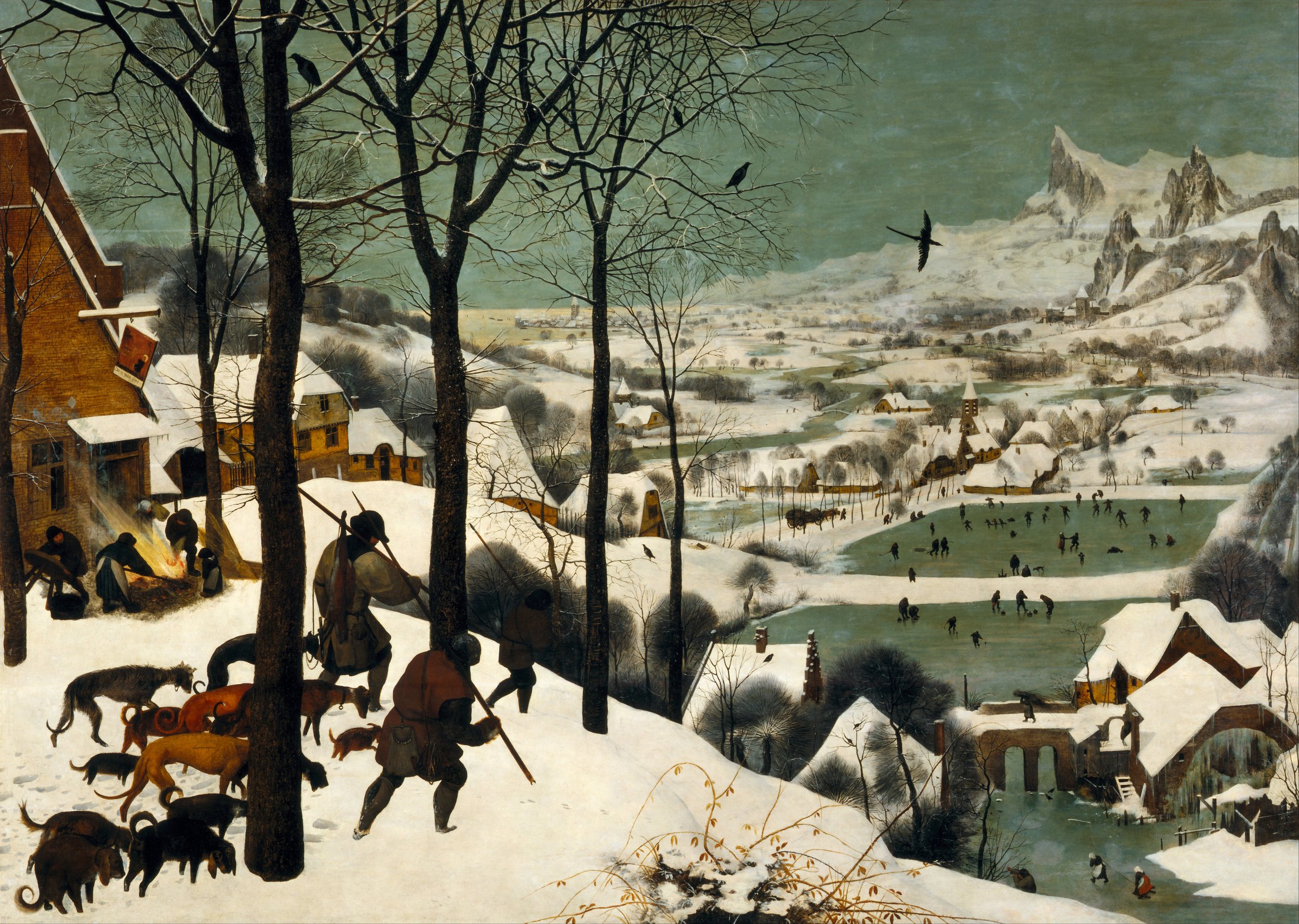I had a lovely time discussing the craft of writing with Thea Prieto of Propeller Magazine last week! We touched on research, breaking workshop "rules," and a handful of the books that enriched the "broth" that was the manuscript of Daughters of the Air. You can read the interview right here.
 Pieter Bruegel the Elder - Hunters in the Snow (Winter) - 1565
Pieter Bruegel the Elder - Hunters in the Snow (Winter) - 1565
This winter, I'm teaching Writing About Place at Hugo House. In this six-week class, we'll read stories by Flannery O'Connor, Louise Erdrich, and Ursula LeGuin, among other illustrious authors. We'll write about places we know, places we don't know, and places that exist only in our imaginations. And, we'll talk about memory, research, and world building. Class meets Wednesdays 5-7 pm from 2/22-3/29. Hugo House is located in First Hill, an easy-peasy trip from downtown and right next to the always-free Frye Art Museum. Speaking of place, if you've not been to the Hugo House's temporary home, you're in for treat, with a light-filled atrium and mysterious winding hallways. Registration is now open. The scholarship deadline is 12/16 and there's an early bird discount until 12/19! Hope to see you there.
One of my former professors from UW, Shawn Wong, advised us to write essays on topics related to our fiction projects whenever we felt stuck. After working through many drafts of my first novel, I've come to really appreciate this advice. Not only does it give you a new angle on your material, enabling a return to the fiction with fresh eyes, but it can also build your confidence about the research you'd done so far and raise new questions that enrich your understanding of your project. Writing essays can also make it easier to talk about your project with authority and maybe answer that dreaded question, "So, what is your novel about?" with less trepidation.Earlier this month, my friend SK invited me to speak to the creative writing classes held at UW's Robinson Center Summer College about travelling to Argentina to research my novel. Though my novel is written for an adult audience, the students in these classes are 5th and 6th graders. It was an enjoyable problem thinking about this different audience and really fun to just address the hands on, primary research I did: walking down Buenos Aires's wide boulevards and narrow alleyways,trying to get a whiff of the city's unique scent (note to self: "city scents" as future post), talking to locals who'd lived through the period I was writing about (1978), and uh, gorging myself on dulce de leche. The students had a lot of awesome, thoughtful questions, like what point of view did you write in, did you ever want to give up in the years that you worked on it, did you ever get stuck and what did you do to get unstuck?Around the same time that I was preparing this talk, I was also working on a short essay for a website called Airplane Reading, which collects "storytelling that can animate, reflect on, and rejuvenate the experience of flight." This essay, "Mapping Imagination," gets at some the anxieties I struggled with in writing and researching the novel and is featured there this week. Having worked on both a short talk and short essay, I'm feeling ready again to continue with all the work that goes into getting the novel out into the world.SK delivered a stack of thank you cards from her students a week after my talk. Some of the details they remembered from the talk and included in their cards were kind of incredible. One student wrote, "P.S. I love food too," which made me plotz, one student made the card in the form of a paper fortune teller (I learned from it that I will write 1000 more short stories in my lifetime), and two students made an elaborate card in which the Argentine flag opened to a diptych with their messages. It really made my week.

